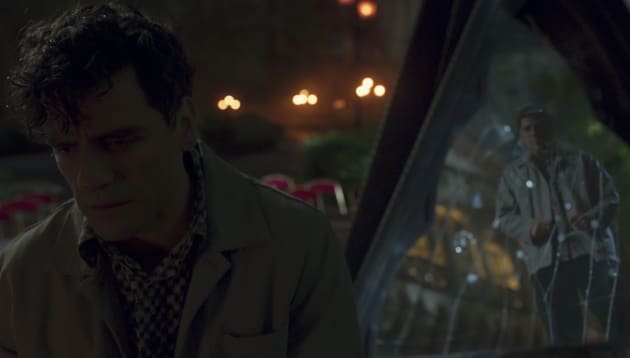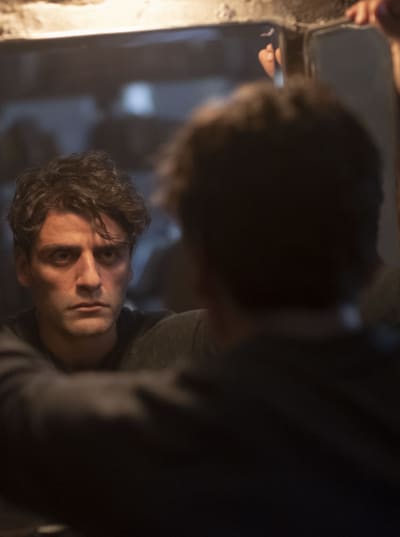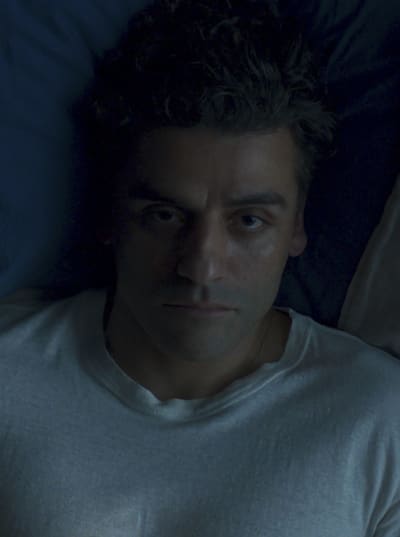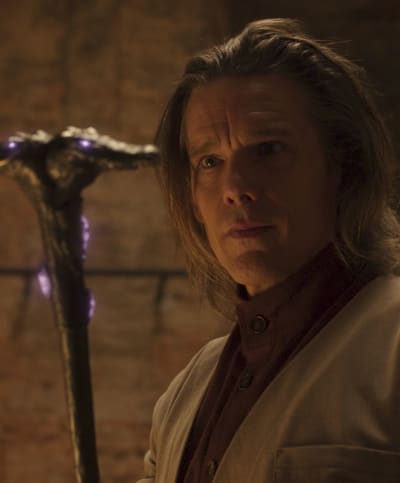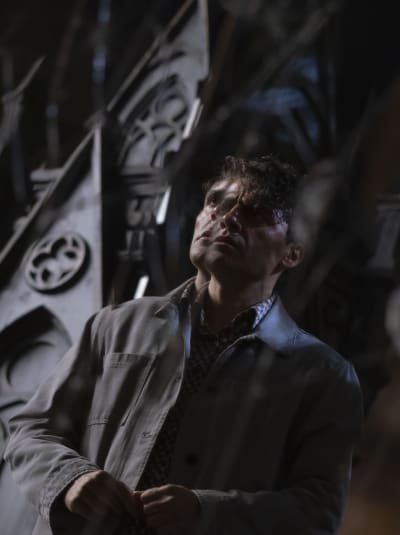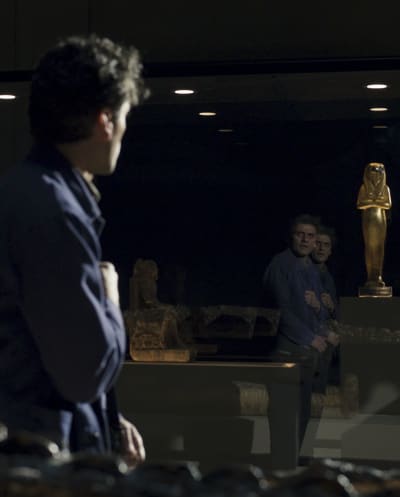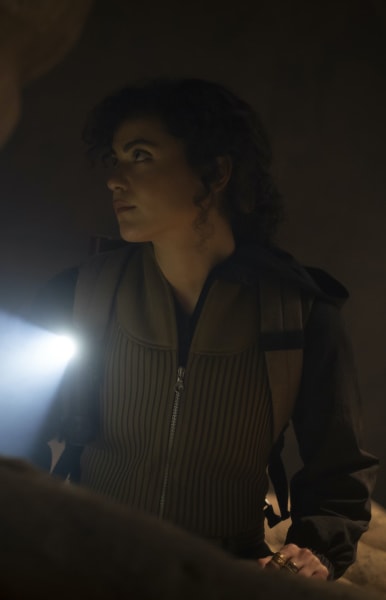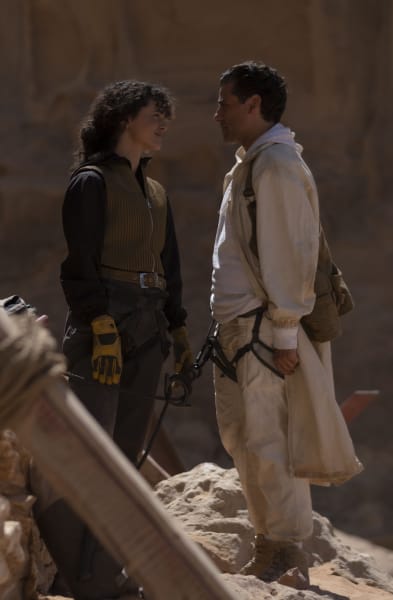The first season of Disney+’s newest Marvel series, Moon Knight, is a challenging story to follow, to say the least.
Yesterday’s final installment continues the show’s examination of trauma, justice, and supernatural interference while providing tantalizing hints at even more depths to plumb.
As with all shows that feature an unreliable narrator, Moon Knight delights in rapid shifts of perspective, disorientation, and deliberate ambiguity.
Full disclosure: I come to Moon Knight with no background on the character, the comics, or the canon. I have no skin in the game in terms of expectations or narrative fidelity, which is a rather foreign experience for me.
The short six-episode run is a well-calculated length for the initial foray into the chaotic and fragmented brain of Marc Spector. Meanwhile, introducing audiences to the mild-mannered identity of Steven Grant first is an effective, if not subtle, strategy to suck us into connecting with him emotionally, if only as a figure of pity at first.
To be fair, it’s not the worst entry point for viewers like me who might not identify with an angry mercenary doing the wrong things for the right reasons but who definitely knows what it’s like to wake up not knowing what day it is.
In fact, my most emotional takeaway from the whole series is the look on Steven’s face on Moon Knight Season 1 Episode 1, “The Goldfish Problem,” when he realizes that he’s missed his highly-anticipated date by days due to his blackouts.
And watching the vegan Grant then try to order a steak with which to sate his sorrow is a heart-breaking stumble through the confusion that is his life.
Just as we start to become accustomed to the unstable nature of Steven’s conscious life, glimpses of the in-between moments emerge, and Marc makes himself known.
He brings the Moon Knight’s abilities and trappings with him, and shortly after that, Steven’s suddenly immersed in a world of the Egyptian supernatural, killers, monsters, and a wife.
And, honestly, that’s where I gave up on trying to track anything related to the plot. Like one of those Magic Eye images, I stopped looking at details and just acknowledged the broader brushstrokes in the story.
At the heart of the show is a man trying to do the right thing. Whether that man is Marc, Steven, or Harrow is a matter of perspective.
Steven has the traditional perspective on right and wrong – do your best to be kind and honest. Marc’s angle is more jaded and anti-hero-like – doing the right thing sometimes involves killing people and lying.
And then there’s Harrow. He’s the bigger picture guy, bigger picture as well as black-and-white. A pinnacle of efficiency, really. Why deal with people’s sins on a case-by-case basis when you can simply wipe out anyone who intends to do wrong?
Complicating things is Marc/Steven’s need for connection. It’s hard to build relationships when whole days are blanks in your memory. Harder to get intimate with someone when you habitually tie yourself to your bed. Impossible to share your secrets when you don’t even know what they are.
Moon Knight Season 1 Episode 5, “Asylum,” is the turning point of clarity where the exploration of Marc’s childhood reveals Steven’s origins. Of course, the dude has to die before he can face all that trauma again.
The horror of his abuse combined with his guilt over his brother’s death is hard to watch. And this is where the psychology of identity takes the wheel.
Marc creates Steven to be the boy he can never be again, to be a blissfully ignorant idealized identity, but in doing so, he strands Steven in a state of eternal victimhood.
As two separate identities, there’s a struggle even before Steven is aware of Marc. Marc may not be able to assume control when Steven is awake but what he does while Steven sleeps leaves Steven living a life full of anxiety and fear.
An unexpected benefit to Marc’s dissociation is that Harrow cannot weigh Ammit’s scales to judge him as there are two sets (three? More on that later) to be balanced.
Personality psychology maintains that, short of sustaining a traumatic brain injury, personalities are static throughout a lifetime.
Hence the shift away from “Multiple Personality Disorder” to “Dissociative Identity Disorder,” where the individual theoretically parses out parts of their identity, fragmenting the whole so that the pieces can survive.
Ultimately, survival is the name of the game. Marc becomes Khonshu’s avatar to evade death just as he creates Steven to hide from an existence worse than death.
And that brings us to Jake Lockley, the third identity subtly hinted at throughout the series, who appears in the finale’s mid-credits stinger scene. (Again, those of us with no comic canon have no idea how deep Marc’s dysfunction runs.)
Seeing as Jake is still bonded to and obedient to Khonshu — but unknown to Marc and Steven — one can assume he’s only active when both Marc and Steven are asleep. I’d like to know if his suit is different from Moon Knight and Mr. Knight.
What purpose does he serve?
Furthermore, what did Layla see on Moon Knight Season 1 Episode 6, “Gods and Monsters,” when Marc and Steven blacked out during the final fight with Harrow?
Did she see Jake’s Khonshu-powered warrior persona, or was it yet another alter?
Layla is a stark and purposeful contrast to every aspect of Marc/Steven as a hero. She’s smart, caring, capable, and confident. Her ability to cope with the secrets Marc keeps from her is near saintly.
Now that she’s Taweret’s avatar — gender-bending the MCU’s Scarlet Scarab, according to my Google-fu research — her role finally matches her potential.
As a mere mortal, Layla’s sheer awesomeness is something both Marc and Steven respond to, and I suspect Marc’s fear that Khonshu would target Layla if he ever quit being the god’s avatar is rooted in knowing she’d be a better Moon Knight.
Luckily, she’s smarter than to team up with Khonshu. Yet another trait that puts her way out of Marc and Steven’s league.
Like TNT’s Legion, which also featured a protagonist with unreliable senses, Moon Knight Season 1 is not a “fun” watch in that there are no comfortable predictability nor plot road markers. As Dissociative Identity Disorder isn’t the product of happy experiences, the only prediction that can be made is horrific trauma and brutal events.
However, it is a show that makes you think long after the credits roll. It’s a show that warrants rewatching for the details that have been meticulously seeded. It’s a show that forces multiple perspectives on its viewers, perspectives that often conflict and conflate, in turns.
There are very few things to dislike in terms of production quality, casting, and writing. At my most critical, I’d call the pacing erratic, but I say that knowing that it is erratic with purpose. It adds to the unpredictable vibe.
What are your thoughts, Fanatics? Did you enjoy the ride Moon Knight takes us on, or did you jump ship?
All six episodes of Marvel’s Moon Knight are now available to stream on Disney+.
Diana Keng is a staff writer for TV Fanatic. Follow her on Twitter.
